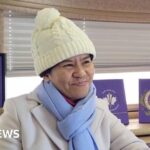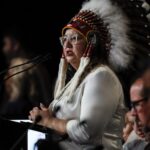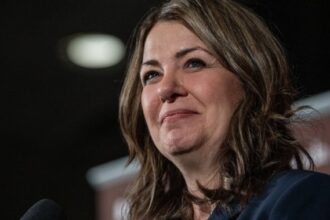A significant reshuffling of key personnel at Canada’s Foreign Affairs Ministry signals potential shifts in diplomatic and defence priorities as the government navigates increasingly complex global challenges. The appointments, announced yesterday by Foreign Affairs Minister Anita Anand, introduce experienced hands to critical policy positions while raising questions about the administration’s strategic direction.
Christopher Berzins, a seasoned diplomatic professional with extensive European experience, has been appointed as the new policy director. His appointment comes at a pivotal moment when Canada’s relationships with European allies face renewed scrutiny amid shifting geopolitical tensions in Eastern Europe and ongoing trade negotiations.
“The complexity of today’s international landscape demands leadership that combines deep institutional knowledge with innovative thinking,” Minister Anand stated during the announcement ceremony at the ministry headquarters in Ottawa. “These appointments reflect our commitment to strengthening Canada’s diplomatic capacity at a critical juncture.”
The staffing changes extend beyond policy leadership. Defence specialist Marina Shenfield will join as senior advisor on security affairs, bringing her experience from previous roles at Canada’s Department of National Defence. Her appointment suggests increased attention to military cooperation with NATO allies and Arctic security concerns that have gained urgency in recent months.
According to ministry sources speaking on condition of anonymity, these appointments represent the most significant restructuring of the department’s senior leadership in nearly five years. The timing coincides with Canada’s renewed push for a non-permanent seat on the UN Security Council and expanding trade relationships across the Indo-Pacific region.
Parliamentary Secretary to the Minister, Marcus Powlowski, emphasized that the reorganization reflects broader strategic priorities. “We’re positioning our diplomatic corps to respond effectively to emerging challenges while advancing Canadian interests and values on the world stage,” he told CO24 News in an exclusive interview.
Diplomatic analysts note these changes follow recent tensions with key trading partners and a series of challenging international summits where Canada has sought to redefine its role in multilateral institutions. Dr. Eleanor Thompson, Director of International Studies at Queen’s University, observes that “the appointment of specialists in European affairs and defence suggests a deliberate pivot toward strengthening transatlantic partnerships while maintaining Canada’s distinct voice in global affairs.”
The ministry’s restructuring also includes significant upgrades to Canada’s diplomatic presence in Southeast Asia, with new specialized positions created in embassies across the region. This expansion aligns with the government’s recently announced Indo-Pacific Strategy, which commits $2.3 billion over five years to enhance economic and security ties with growing powers in the area.
While the government frames these changes as strategic enhancements, opposition critics question their timing and direction. Shadow Foreign Affairs Minister Michael Chong described the moves as “reactive rather than visionary” during yesterday’s Question Period in Parliament, suggesting they represent an attempt to address long-standing deficiencies in Canada’s diplomatic preparedness rather than a coherent new approach to global politics.
Industry stakeholders, particularly those in international trade sectors, have cautiously welcomed the appointments. “We’re seeing signals that commercial diplomacy will receive greater attention under this new structure,” said Jennifer Morrison, president of the Canadian International Trade Association. “The question remains whether this will translate to tangible support for Canadian businesses operating in competitive global markets.”
As these new appointees assume their roles in the coming weeks, the international community will be watching closely for indications of potential shifts in Canadian foreign policy. Will these staffing changes truly rejuvenate Canada’s diplomatic approach, or do they merely represent a reshuffling of personnel without substantive policy evolution?

























